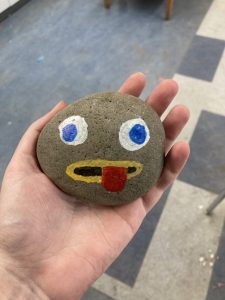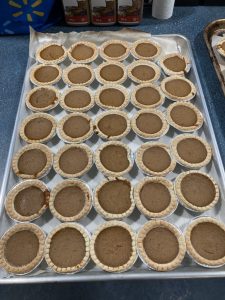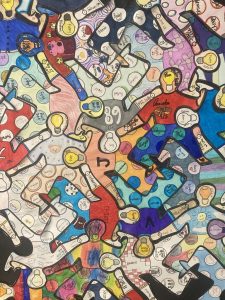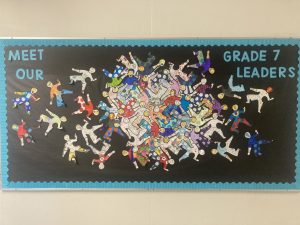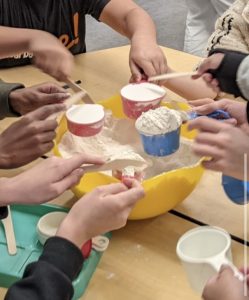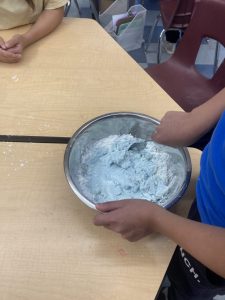Be careful what you wish for! Our class completed our first read-aloud, the horror novel The Nest by Kenneth Oppel. In this story, a boy named Steven makes a wish to heal his baby brother’s illness. However, his wish costs him much more than he anticipated when he realizes the ‘angels’ he has been talking to are really a hive of supernatural wasps!

We thought this novel had many twists, turns, and suspenseful moments. The dark, creepy illustrations added to the experience. While some of us weren’t entirely satisfied with the ending, this was a great first read-aloud to kick off our school year!
In 2020, the authour Kenneth Oppel shared that The Nest could potentially be made into a film one day! Here is a sketch of the concept art:

Some questions to discuss at home:
- Would you watch a film adaptation of this novel? Why or why not?
- Who might you cast in the role of Steven, the Queen, and Mr. Nobody? Why?
- What songs/soundtrack would you want to include in this movie?


